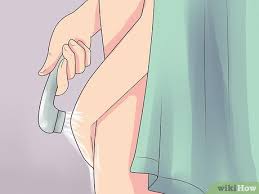Top Tips for Private Part Health: A Comprehensive Guide |Adult Sex Toys Amritsar

Top Tips for Private Part Health: A Comprehensive Guide |Adult Sex Toys Amritsar
1. What are the best practices for maintaining private part health?
Private part health is crucial for overall well-being. Here are some top tips to maintain it:
- Hygiene: Regularly wash with mild soap and water to prevent infections.
- Safe Sex: Use protection to avoid sexually transmitted infections (STIs).
- Healthy Diet: Eat a balanced diet rich in fruits, vegetables, and lean proteins.
- Stay Hydrated: Drink plenty of water to flush out toxins.
- Regular Check-ups: Visit your healthcare provider for routine check-ups and screenings.
- Exercise: Engage in physical activity to improve blood flow and overall health.
- Manage Stress: Practice stress-reducing techniques like yoga or meditation.
2. What are the common misconceptions about private part health?
Misconceptions about private part health can lead to misinformation. Here are some common myths debunked:
- Myth: Douching is Necessary: Douching can disrupt the natural pH balance and lead to infections.
- Myth: Tight Clothing Causes Infections: While tight clothing can be uncomfortable, it doesn’t directly cause infections.
- Myth: You Don’t Need Protection if You’re on Birth Control: Birth control doesn’t protect against STIs; use condoms for added protection.
- Myth: Only Women Need to Worry About Private Part Health: Both men and women need to prioritize private part health.
- Myth: Private Part Health Doesn’t Impact Overall Health: Private part health is interconnected with overall health and well-being.
3. How does diet affect private part health?
Diet plays a significant role in private part health. Here’s how:
- Hydration: A well-hydrated body maintains optimal function and reduces the risk of urinary tract infections (UTIs).
- Nutrient Intake: Vitamins and minerals support healthy skin and mucous membranes.
- Probiotics: Foods like yogurt with active cultures promote a healthy balance of bacteria in the private parts.
- Avoiding Irritants: Spicy foods and caffeine can irritate the private parts; moderation is key.
4. What are the best practices for private part health during menstruation?
During menstruation, extra care is needed for private part health. Follow these tips:
- Change Regularly: Use sanitary pads or tampons and change them frequently.
- Maintain Hygiene: Wash regularly and avoid scented products that can cause irritation.
- Stay Comfortable: Wear breathable, cotton underwear to allow airflow.
- Avoid Harsh Chemicals: Use gentle, fragrance-free products for cleaning.
5. How does exercise contribute to private part health?
Exercise benefits private part health in several ways:
- Improved Blood Circulation: Exercise increases blood flow to the private parts, promoting overall health.
- Hormone Regulation: Regular exercise helps balance hormones, reducing the risk of hormonal imbalances.
- Stress Reduction: Exercise is a natural stress reliever, which can positively impact private part health.
6. What are the signs of a private part infection?
Recognizing the signs of a private part infection is crucial for prompt treatment. Common symptoms include:
- Itching or Irritation: Persistent itching or irritation in the private parts may indicate an infection.
- Unusual Discharge: Changes in color, consistency, or odor of discharge can signal an infection.
- Pain or Discomfort: Pain during urination or intercourse can be a sign of infection.
- Redness or Swelling: Inflammation and swelling in the private parts may indicate an infection.
- Foul Odor: Strong or unpleasant odors from the private parts can be a symptom of infection.
7. How can one maintain a healthy private part microbiome?
A healthy private part microbiome is essential for overall health. Here’s how to maintain it:
- Avoid Harsh Products: Use gentle, pH-balanced products to avoid disrupting the natural microbiome.
- Probiotics: Incorporate probiotic-rich foods or supplements to support a healthy balance of bacteria.
- Limit Antibiotic Use: Use antibiotics judiciously as they can disrupt the microbiome.
- Stay Hydrated: Proper hydration supports a healthy microbiome.
- Practice Safe Sex: Use protection to prevent the spread of harmful bacteria.
Summary Table
| Topic | Key Points |
|---|---|
| Hygiene | Regular washing with mild soap and water |
| Safe Sex | Use protection to prevent STIs |
| Healthy Diet | Balanced diet with fruits, vegetables, and lean proteins |
| Regular Check-ups | Routine visits to healthcare providers |
| Exercise | Promotes blood flow and hormone balance |
| Diet & Hydration | Hydration, nutrient intake, probiotics, and avoiding irritants |
| Menstruation | Change regularly, maintain hygiene, and avoid irritants |
| Exercise Benefits | Improved circulation, hormone regulation, and stress reduction |
| Signs of Infection | Itching, discharge changes, pain, redness, swelling, odor |
| Private Part Microbiome | Avoid harsh products, probiotics, limit antibiotics |
FAQ
1. How often should I visit a healthcare provider for private part check-ups?
It’s recommended to have regular check-ups at least once a year or more frequently if you experience any symptoms or concerns.
2. Can tight clothing cause private part infections?
While tight clothing may be uncomfortable, it doesn’t directly cause infections. However, wearing breathable fabrics can promote better airflow and reduce moisture buildup.
3. Is douching necessary for private part hygiene?
Douching is not necessary and can actually disrupt the natural pH balance, leading to infections. Regular washing with mild soap and water is sufficient.
4. What should I do if I suspect a private part infection?
If you experience symptoms like itching, unusual discharge, pain, or redness, it’s important to consult a healthcare provider for proper diagnosis and treatment.
5. How does diet impact private part health?
A healthy diet rich in nutrients, hydration, and probiotics supports a healthy private part microbiome, reducing the risk of infections and promoting overall well-being.
6. Can exercise improve private part health?
Yes, regular exercise promotes blood flow, hormone balance, and stress reduction, all of which contribute to better private part health.
7. What are some common myths about private part health?
Common myths include the belief that tight clothing causes infections, douching is necessary for hygiene, and private part health only concerns women. It’s important to separate fact from fiction for optimal health.












